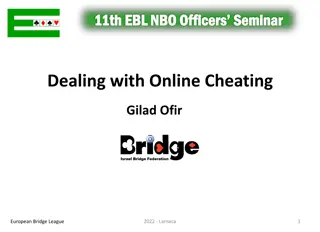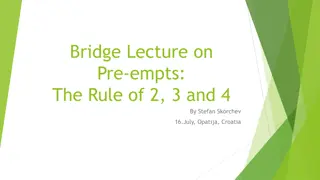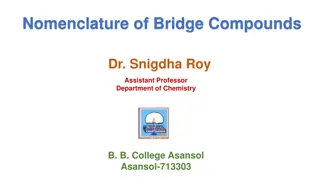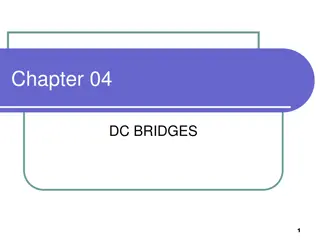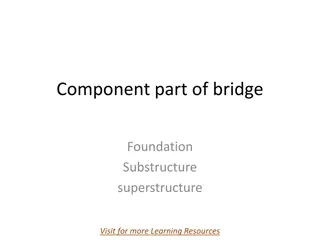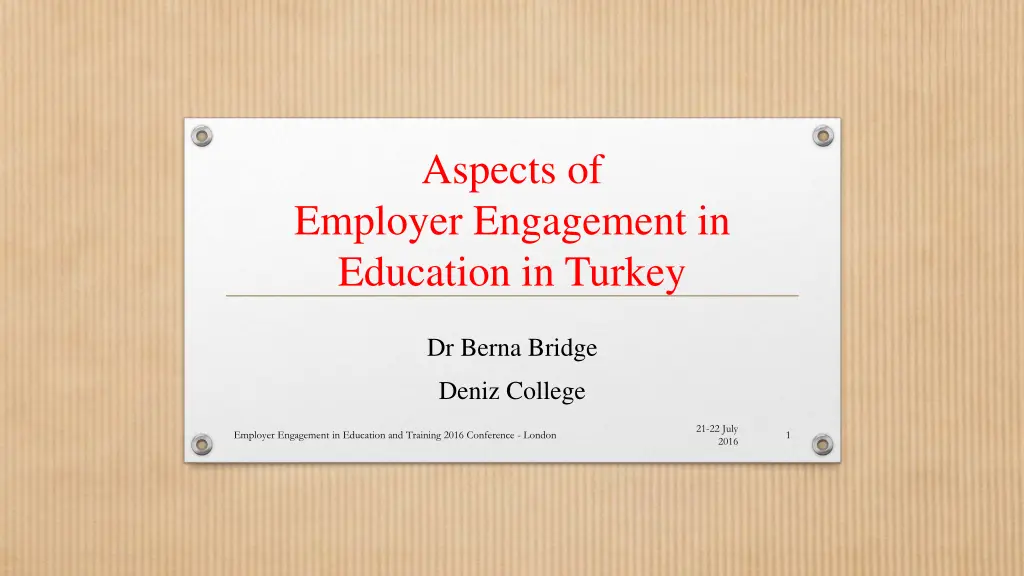
Understanding Employer Engagement in Education in Turkey
Explore the aspects of employer engagement in the Turkish education system, including the 4+4+4 model, types of schools, and the historical context of educational reforms. Learn about the evolution of compulsory education, the role of Imam schools, and the political influences on the educational landscape in Turkey.
Download Presentation

Please find below an Image/Link to download the presentation.
The content on the website is provided AS IS for your information and personal use only. It may not be sold, licensed, or shared on other websites without obtaining consent from the author. If you encounter any issues during the download, it is possible that the publisher has removed the file from their server.
You are allowed to download the files provided on this website for personal or commercial use, subject to the condition that they are used lawfully. All files are the property of their respective owners.
The content on the website is provided AS IS for your information and personal use only. It may not be sold, licensed, or shared on other websites without obtaining consent from the author.
E N D
Presentation Transcript
Aspects of Employer Engagement in Education in Turkey Dr Berna Bridge Deniz College 21-22 July 2016 Employer Engagement in Education and Training 2016 Conference - London 1
Turkish Education System: Setting the Scene Compulsory Education in Turkey is a 4+4+4 model, since 2012. 4 years of primary school (age 6-10) 4 years of middle school (age 10-14) 4 years of secondary school (age 14-18) Kindergarten is not compulsory and is not free. Employer Engagement in Education and Training 2016 Conference - London 21-22 July 2016 2
Types of Schools in Turkey Since 2012 Primary Schools: Same curriculum is taught throughout Turkey. (Age 6-10) Middle Schools: Two types; Imam Schools or Secular Schools. Imam Schools teach a Muslim curriculum towards clergy employment. Secular schools teach towards secondary education. (Age 10-14) Secondary Schools: Mainly four types: Imam Schools, Secular Lycees, Military Lycees, and Vocational Lycees. Secular schools teach towards university, vocational schools teach towards employment after finishing school. (Age 14-18) Employer Engagement in Education and Training 2016 Conference - London 21-22 July 2016 3
Educational Background in Turkey: A Political Arena Between 1923 and 1998 it was 5+3+3. The primary stage of 5 years being compulsory, 3 years of middle and 3 years of secondary school were not compulsory. Students could go to Imam and military schools for middle school education at the age of 11. With the increase in the number of Imam schools, in 1998, the system was changed into two stages as 8+4, the first 8 years being continuous and compulsory. These 8 years was a mixture of 5 primary and 3 middle school years, all in the same school grounds, with the aim of basic secular education until the age of 14, so that students could make their own choices, after the age 14. Employer Engagement in Education and Training 2016 Conference - London 21-22 July 2016 4
Educational Background in Turkey: A Political Arena In 1998, the sole reason for the introduction of the 8 year, one stage, compulsory education was to stop children from being sent to Imam schools at the age of 11, at a very young age, coupled with social pressure. Turkey is a secular Muslim nation. In 2012, the 4+4+4, three stage, compulsory education was introduced so that children at the age of 10 could be sent to Imam schools and be brought up as Imams. Employer Engagement in Education and Training 2016 Conference - London 21-22 July 2016 5
Educational Background: University Education Degree courses: 4 years for all subjects except medicine and dentistry. Dentistry is 5 years, medicine is 6 years. Higher Vocational Education within the universities: 2 years at university, called Vocational Higher Schools . They do not offer degrees but offer diplomas. Open university offers the same framework in certain subjects. (not medicine or engineering but commerce and some social subjects) Employer Engagement in Education and Training 2016 Conference - London 21-22 July 2016 6
Some Details about the University Exam About 1,500,000 2,000, 000 students sit the centralized, multiple choice, very competitive, very popular university exam every year. A student can sit the university exam as many times as he/she desires. Many students who graduate from university are unable to find employment. (There are 557.000 unemployed graduates.) Many students end up working in fields of employment that have no relevance to their university education. (For example a student who graduates from the department of archaeology may become a shop keeper or primary school teacher as he/she can not find employment in his field) Employer Engagement in Education and Training 2016 Conference - London 21-22 July 2016 7
2015 University Exam Statistics Number of students who applied for the exam: 2 126 684 Number of students who sat the exam: 1 987 488 Number of students that were placed in a 4 year course: 423 210. (about a fifth) Employer Engagement in Education and Training 2016 Conference - London 21-22 July 2016 8
University: Selecting Departments The central university exam: Many students can not enroll in subjects that they may actually desire but enroll in subjects that their score allows. Societal values and social pressure also play an important role. Most popular courses are medicine, engineering, dentistry, law and architecture. These are the ones that require the highest points. Successful students who score high points choose these subjects without questioning their talent and interest in these areas Employer Engagement in Education and Training 2016 Conference - London 21-22 July 2016 9
Educational Background Public schools and universities offer free education provided by the state. Also, there are private schools and universities that offer payed education. Some of these are very high in quality where as others are of very low quality, not standardised by the government. (The 2015 university exam statistics shown here included both the state and private university placements.) Employer Engagement in Education and Training 2016 Conference - London 21-22 July 2016 10
Some Questions Can Imam School students sit the university exam and go into departments that have nothing to do with clergy work such as law, medicine or engineering? Yes now. No, in the past. Who chooses the vocational secondary schools? Those who want employment right after school and those who rate themselves as not very academically inclined. As these schools are unfortunately wrongly judged, university education becomes very popular, giving rise to many unemployed graduates who look down at technical jobs. (almost an unspoken cast system) Employer Engagement in Education and Training 2016 Conference - London 21-22 July 2016 11
Can vocational school students and military school students sit the university exam? Yes,but they tend to continue in their original fields of interest. A military student remains in the military, a kindergarten teacher continues in her field, not swiching to law or medicine. What is the difference between Imam schools and the secular schools? More lessons about the Muslim religion and Arabic is taught. In other schools, Arabic and Koran are not taught. Employer Engagement in Education and Training 2016 Conference - London 21-22 July 2016 12
Employer Engagement in Education None in primary schools. The choice of middle school rests on the parent(s)and the aviailability of state schools in the neighbourhood. None in middle schools. The choice of secondary education rests on the parent(s) and the availability of state schools in the neighbourhood. Some in secular secondary schools. Employer Engagement in Education and Training 2016 Conference - London 21-22 July 2016 13
Employer Engagement in Secular Secondary Schools A minority of schools have Career Days in which people of different careers are invited to share their experiences. These experiences happen to be of a personal type, depending on the personality and personal experiences of the speaker. It does not represent the whole picture. Most students choose a career according to his/her parent(s) decision or advice or chance. Employer Engagement in Education and Training 2016 Conference - London 21-22 July 2016 14
Employer Engagement in Vocational Secondary Schools In this area, there is a very structured system but of course the choice of career is already made: In the last year of these schools, the students do practical placements, three days a week. They get paid one third of the minimum wage by the employer. Their progress is reviewed by both their teachers and the employer. These students work as if they are employed in their practice. They learn a lot and put in a lot of useful work for the employer. Often, they guarantee their job for the following year by their good performance. Employer Engagement in Education and Training 2016 Conference - London 21-22 July 2016 15
Placements in Vocational Secondary Schools Which areas? Kindergarden teachers Pre-accountancy (financial secreterial) Beauty parlours like hairdressing, facials, waxing, etc Secreterial Electrical, computing, ship making technicians Employer Engagement in Education and Training 2016 Conference - London 21-22 July 2016 16
Employer Engagement in Vocational Colleges Not structured like vocational secondary schools, small attempts Employer Engagement in Education and Training 2016 Conference - London 21-22 July 2016 17
Employer Engagement at Universities A few attempts but not widespread to all university students, not structured Some examples of these attempts are on the following slides Employer Engagement in Education and Training 2016 Conference - London 21-22 July 2016 18
Kipa (Tesco) Youth Academy Kipa (Tesco) offers an educational acitivity to DE University, Business Administration Faculty, third and fourth year students. to develop some key skills for professional life. A free programme that includes skills like teamwork, confidence building, personal effectiveness, creative thinking and problem solving through interactive workshops, free materials and activities. Nearly 100 students have attended this programme and received a certificate. It was designed as 14 hours with 20 students in each module, a total of 5 modules. Employer Engagement in Education and Training 2016 Conference - London 21-22 July 2016 19
Istanbul Chamber of Commerce The Istanbul Chamber of Commerce aims to establish effective, high quality, realistic and result-oriented cooperation between university and industry, and act as a strong coordinator to ensure rational use of limited resources. They created the Industry Platform that brings together all stakeholders to join forces and establish cooperation between Technology Transfer Offices, industrial enterprises and related organizations. The Industry Platform carries out activities with different working groups such as Strategy , Legislation and University-Industry Cooperation Portal . As part of the university-industry cooperation, they also facilitate "Cooperation Protocols" with universities to ensure that information and technology flow between universities and industries are handled in a more organized and systematic manner. Employer Engagement in Education and Training 2016 Conference - London 21-22 July 2016 20
Istanbul Chamber of Commerce Working with: Bo azi i University Istanbul University Istanbul Technical University Ko University Marmara University Sabanc University, and Y ld z Technical University Employer Engagement in Education and Training 2016 Conference - London 21-22 July 2016 21
Yasar University, Koc University, Sabanci Univerity These universities are private and are owned by holdings. So, internships are possible in their own factories. Through the corporations they own, sometimes experience is offered to the students but it is not widespread or taken seriously. Employer Engagement in Education and Training 2016 Conference - London 21-22 July 2016 22
KOSGEB Aiding small entrepreneurship. (Kosgeb: The chair of developing called small and middle sized bussiness enterprize) The government helps financially and sometimes educationally to adults to set up small business. Employer Engagement in Education and Training 2016 Conference - London 21-22 July 2016 23
Technokents In some technical universities, entrepreneurs are given opportunities like tax reductions in sections called Techno cities within the university. (IZTECH, METU etc.) Employer Engagement in Education and Training 2016 Conference - London 21-22 July 2016 24
In Service Training In-service training includes adult planned education activities which are designed to help newly hired or currently employed personnel to gain essential knowledge, skills and characteristics required for their jobs. This is becoming increasingly common nowadays. Harsh competition in business life and rapid developments in knowledge and technology have made skills provided by in service training obsolete. Employer Engagement in Education and Training 2016 Conference - London 21-22 July 2016 25
ISKUR The government offers employers opportunity to employ workers and train them. For six months the government pays a minimum salary to the worker so that employers do not have to pay a salary. Most often the worker does not complete the six months, when he/she finds a better paid job, leaves the job. Often, employers use the workers free of salary for six months but do not employ the worker at the end of the six month period. (Open to abuse) Employer Engagement in Education and Training 2016 Conference - London 21-22 July 2016 26
Halk Egitim Public Education offered by the Ministry of Education Gives short courses (about one to three months long) for people employed as workers to make them more qualified workers. Employer Engagement in Education and Training 2016 Conference - London 21-22 July 2016 27
Our Challenge To bring employer engagement in education up to EU and British standards in a secular education system Employer Engagement in Education and Training 2016 Conference - London 21-22 July 2016 28
Thank you Dr. Berna Bridge Employer Engagement in Education and Training 2016 Conference - London 21-22 July 2016 29






